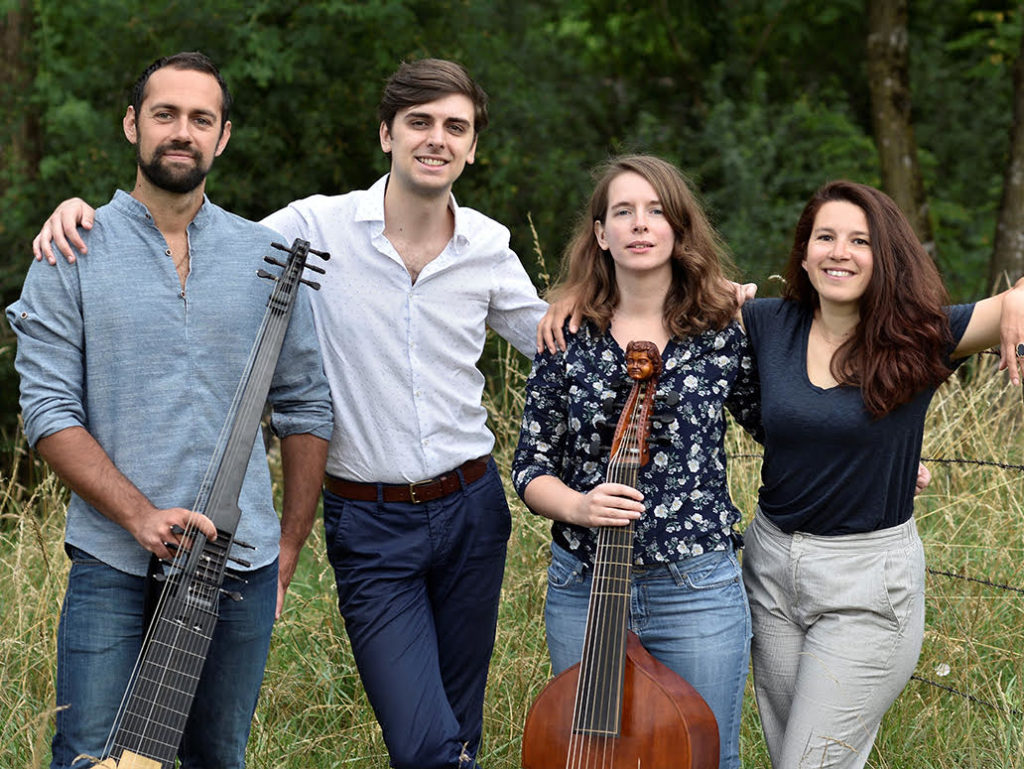
York Early Music Christmas Festival: La Palatine, Il n’y a pas d’amour heureux, National Centre for Early Music, York, December 4
IT is hard to think that an early music event has ever included a modern French cabaret song. Until now.
La Palatine, a French quartet who joined the EEEmerging scheme (Emerging European Ensembles) last year, waited until the end of their stimulating lunchtime concert to reveal the origin of their programme title, ‘Il n’y a pas d’amour heureux’ (There’s no such thing as happy love).
It was an umbrella motto for a roving exploration of the pitfalls and drawbacks of love in the songs and arias of Italian early baroque. Italian poets of the period positively wallowed in self-pity over amatory disasters, real or imagined.
Composers naturally followed suit. So we had Domenico Mazzocchi (Rome), Francesco Cavalli (Venice) and Tarquinio Merula (Cremona), amid a host of lesser lights, culminating in the great Monteverdi (Mantua) and his Lamento di Arianna.
Off-stage humming was the prelude to Kapsberger’s hymn to Rosa Bianca, whose dazzling whiteness symbolised virginal innocence. Emotions ran a lot higher when soprano Marie Théoleyre applied her fluent coloratura to Mazzocchi’s S’io mi parto (when I leave … I shall die), exactly what one would expect from a composer on the rave.
A dip into Cavalli’s opera Eliogabalo (1668) produced an aria of heartfelt pain, but the progressive Merula’s tale of a girl continually stood up by her boyfriend was actually very amusing in Théoleyre’s peppy delivery. Sometimes these breast-beating pronouncements are just a little over the top.
With two excursions into cantatas by Luigi Rossi, it was the turn of our love-lorn lass to inflict vengeance, although not before she had turned catty – some distinctly feline noises here – climaxing in some triumphal coloratura in “I’ll make you pay”.
That called for some remorse. It came with the programme’s only sacred piece, Mazzochi’s handsomely chromatic Lagrime amare (bitter tears), with weeping written into every line. It would have been even more effective if Théoleyre’s diction had been less lax.
She more than made amends, however, with a crunching Arianna, lamenting her mistreatment by Theseus, as her central mad scene reached near-suicidal levels. Invoking nature as well as her friends, she calmed down on realising that her fate awaits any who love or believe too much. Monteverdi’s supremacy in this repertory shone through every bar.
We had enjoyed instrumental interjections throughout, including a rambling Frescobaldi toccata from Guillaume Haldenwang’s harpsichord, a lute passacaglia from Juan-José Francione, and rapid gamba figurations from Noémie Lenhof, both these latter pieces by Giovanni Vitali. All were despatched with brio, as were the accompaniments to the vocal music.
Then came the final revelation. Adopting her finest Edith Piaf chest tone, Théoleyre took us into a Parisian nightclub with singer-songwriter Georges Brassens’ setting of Louis Aragon’s poem (1943) used as title for this concert. It seemed to fit perfectly. No-one minded in the slightest. Quite the contrary.
Martin Dreyer
